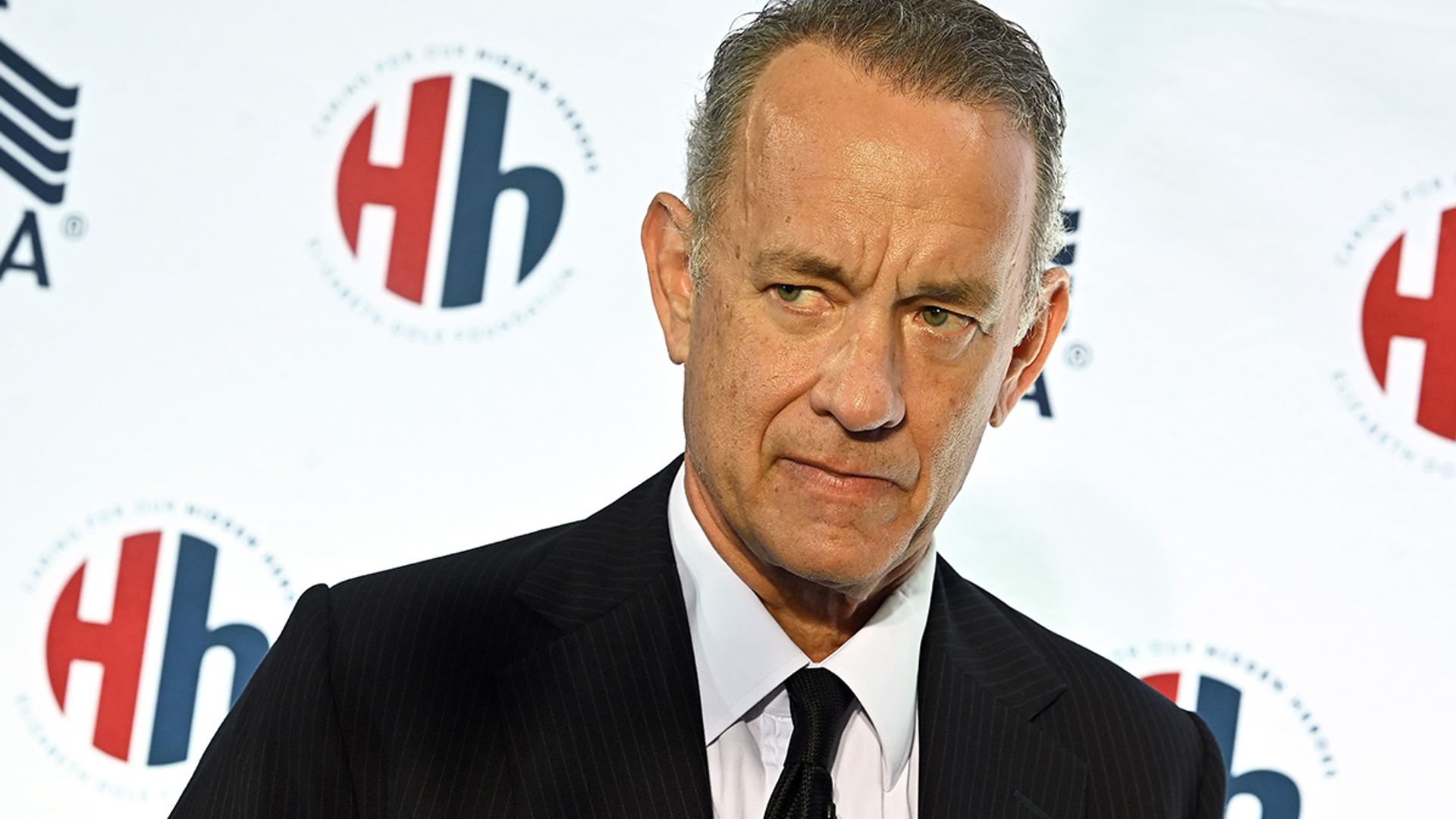When it comes to Hollywood legends, Tom Hanks is a name that resonates with millions around the globe. But beyond his iconic roles and award-winning performances, there’s another side to this beloved actor—his health journey. In recent years, Tom Hanks has been candid about his prostate problems, shedding light on a topic that many men shy away from discussing. Today, we’re diving deep into his story, uncovering the facts, and understanding the importance of prostate health.
Let’s be real here—prostate issues are something most dudes don’t wanna talk about. It’s one of those topics that gets swept under the rug until it becomes unavoidable. But Tom Hanks? He’s not your typical Hollywood star who keeps his personal stuff private. Instead, he’s been open about his prostate problems, turning his experience into an opportunity to educate others.
So, why should you care? Well, if you’re a guy—or know someone who is—it’s crucial to understand the signs, risks, and preventive measures for prostate health. This article isn’t just about Tom Hanks; it’s about empowering YOU with knowledge so you can take charge of your well-being.
Read also:Poppy Kennedy Mcilroy The Rising Star In The Spotlight
Table of Contents
- Tom Hanks Biography
- Understanding Tom Hanks' Prostate Problem
- Common Symptoms of Prostate Issues
- How Prostate Problems Are Diagnosed
- Treatment Options for Prostate Conditions
- Preventing Prostate Problems
- Raising Awareness Through Celebrity Stories
- Prostate Cancer Statistics You Need to Know
- Support Systems for Men Dealing with Prostate Issues
- Final Thoughts on Tom Hanks Prostate Problem
Tom Hanks Biography
Who Is Tom Hanks?
Before we dive into his health struggles, let’s take a moment to appreciate the man behind the screen. Born on July 9, 1956, in Concord, California, Thomas Jeffrey Hanks grew up in a middle-class family. From his early days in theater to his rise as a Hollywood heavyweight, Tom’s journey is nothing short of inspiring.
Here’s a quick snapshot of his life:
| Full Name | Thomas Jeffrey Hanks |
|---|---|
| Date of Birth | July 9, 1956 |
| Place of Birth | Concord, California |
| Spouse | Rita Wilson (married since 1988) |
| Children | Four (including Colin Hanks and Truman Hanks) |
| Notable Movies | Forrest Gump, Cast Away, Saving Private Ryan, Philadelphia, and more |
Understanding Tom Hanks' Prostate Problem
Tom Hanks first revealed his prostate issues back in 2013 during a press conference. At the time, he mentioned being diagnosed with prostate cancer, a revelation that shocked fans worldwide. But instead of shying away from the topic, Tom embraced it, using his platform to encourage men to prioritize their health.
He explained that his diagnosis came after routine blood tests revealed elevated levels of prostate-specific antigen (PSA), a marker often associated with prostate cancer. While this news was undoubtedly scary, Tom’s attitude remained optimistic. “It’s a slow-growing form of cancer,” he said, emphasizing that early detection made all the difference.
Why Did He Go Public?
Going public with such a personal matter isn’t something everyone would do, but Tom Hanks isn’t just any celebrity. By sharing his story, he hoped to inspire others to get regular checkups and not ignore potential warning signs. His transparency has sparked important conversations about men’s health, particularly prostate-related issues.
Common Symptoms of Prostate Issues
Now that we’ve got the backstory, let’s talk about what prostate problems actually look like. Symptoms can vary depending on the condition, but here are some common ones:
Read also:Charlize Theron Butt The Story Behind The Scene
- Frequent urination, especially at night
- Difficulty starting or stopping urine flow
- Weak or interrupted stream of urine
- Pain or burning sensation during urination
- Blood in the urine or semen
- Pain in the pelvic area, lower back, or thighs
Keep in mind that these symptoms don’t necessarily mean you have cancer. They could indicate benign prostatic hyperplasia (BPH) or prostatitis, which are less serious but still require medical attention.
How Prostate Problems Are Diagnosed
Diagnosing prostate issues involves a combination of tests and evaluations. Here’s how doctors typically approach it:
- Digital Rectal Exam (DRE): A physical exam where the doctor feels the prostate for abnormalities.
- PSA Blood Test: Measures the level of prostate-specific antigen in the blood.
- Biopsy: If results are inconclusive, a small sample of prostate tissue may be taken for analysis.
- Imaging Tests: Ultrasounds or MRIs might be used to get a clearer picture of the prostate.
Early detection is key, which is why regular screenings are recommended for men over 50—or earlier if there’s a family history of prostate cancer.
Treatment Options for Prostate Conditions
Treatment depends on the specific condition and its severity. For prostate cancer, options include:
- Active surveillance (monitoring without immediate treatment)
- Radiation therapy
- Surgery (prostatectomy)
- Hormone therapy
For BPH, treatments might involve medication, minimally invasive procedures, or lifestyle changes. Always consult a healthcare professional to determine the best course of action.
Preventing Prostate Problems
While some factors—like genetics—are beyond our control, there are steps you can take to reduce your risk:
- Maintain a healthy diet rich in fruits, vegetables, and whole grains
- Exercise regularly to keep your body in shape
- Avoid smoking and limit alcohol consumption
- Stay informed about your family’s medical history
- Get regular checkups, especially as you age
Remember, prevention is always better than cure. Taking proactive steps today can save you a world of trouble tomorrow.
Raising Awareness Through Celebrity Stories
Celebrities like Tom Hanks play a vital role in raising awareness about health issues. When someone as influential as Tom speaks out, it encourages others to do the same. By normalizing conversations around prostate health, he’s helping break down stigmas and fostering a culture of openness.
Think about it—how many times have you heard someone say, “I didn’t know I needed to worry about that”? Celebrity stories serve as reminders that even the toughest guys need to take care of themselves.
How Can You Help?
Spread the word! Share articles like this one with friends and family. Encourage the men in your life to prioritize their health. Together, we can make a difference.
Prostate Cancer Statistics You Need to Know
Let’s talk numbers. According to the American Cancer Society:
- Approximately 1 in 8 men will be diagnosed with prostate cancer during their lifetime.
- Prostate cancer is the second leading cause of cancer death in American men.
- Early detection significantly improves survival rates, with a 98% five-year survival rate for localized cases.
These stats highlight the importance of education and awareness. Knowledge is power, and the more we know, the better equipped we are to fight this disease.
Support Systems for Men Dealing with Prostate Issues
Fighting prostate problems can be a lonely battle, but it doesn’t have to be. There are countless resources available to help men navigate their journey:
- Prostate Cancer Foundation: Offers research updates, patient support, and educational materials.
- Us TOO International: Provides peer-led support groups and educational programs.
- CancerCare: Offers free counseling and financial assistance for cancer patients.
Don’t hesitate to reach out for help. Whether it’s through professional services or connecting with others who’ve been there, support is out there waiting for you.
Final Thoughts on Tom Hanks Prostate Problem
Tom Hanks’ prostate problem isn’t just a personal challenge—it’s a wake-up call for all of us. By sharing his story, he’s reminding us that health should never take a backseat, no matter how busy or successful we are. Prostate issues may seem intimidating, but with the right knowledge and resources, they’re manageable.
So, what can you do? Start by scheduling that long-overdue checkup. Educate yourself about the signs and symptoms. And most importantly, don’t be afraid to ask for help when you need it. Your health matters—make it a priority.
And hey, while you’re at it, why not drop a comment below? Share your thoughts, ask questions, or tell us how this article impacted you. Let’s keep the conversation going and make a positive change in the world of men’s health.


